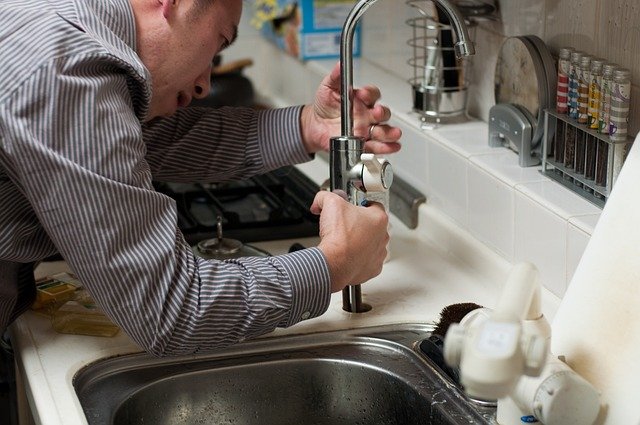Understanding Home Care Services in the UK
Home care has become an increasingly vital service across the United Kingdom, offering individuals the opportunity to receive professional support while maintaining independence in familiar surroundings. As the population ages and healthcare needs evolve, understanding the various elements of home care—from provider qualifications to financial considerations—becomes essential for families making important care decisions.

Home care services represent a vital component of the UK’s healthcare system, offering personalised support that enables people to maintain their independence while receiving the assistance they need. The sector has experienced significant growth in recent years, driven by demographic changes and evolving preferences for care delivery.
The landscape of home care in the UK includes both publicly funded services through local authorities and private providers offering fee-paying options. Understanding the various aspects of home care services helps individuals and families make informed decisions about their care needs.
What Qualifications and Training Do Healthcare Providers Need?
Home care workers in the UK must meet specific qualification and training requirements to ensure safe and effective care delivery. Most providers require completion of the Care Certificate, which covers fundamental skills and knowledge areas including safeguarding, infection control, and person-centred care approaches.
Many home care assistants pursue additional qualifications such as NVQ Level 2 or 3 in Health and Social Care, while registered nurses working in home care settings must maintain their professional registration with the Nursing and Midwifery Council. Ongoing training requirements typically include manual handling, first aid certification, and specialised training for conditions like dementia care.
How Much Do Home Care Services Cost?
The cost of home care services varies significantly depending on the level of care required, geographic location, and whether services are privately funded or partially supported through local authority funding. Private home care rates typically range from £15 to £25 per hour for basic personal care, with specialised nursing care commanding higher rates of £25 to £40 per hour.
Local authority-funded care may involve means-tested contributions, with some individuals paying the full cost while others receive partial or complete funding support. The Care Act 2014 established that individuals with assets below £23,250 may qualify for local authority support, while those with assets above £100,000 typically fund their own care.
| Service Type | Provider Example | Typical Hourly Rate |
|---|---|---|
| Basic Personal Care | Comfort Call, Visiting Angels | £15-£20 |
| Companionship Services | Home Instead, Bluebird Care | £16-£22 |
| Nursing Care | Bupa Home Healthcare, HC-One | £25-£35 |
| Live-in Care | Consultus Care, Country Cousins | £120-£180 per day |
| Dementia Care | Alzheimer’s Society, Dementia UK | £18-£28 |
Prices, rates, or cost estimates mentioned in this article are based on the latest available information but may change over time. Independent research is advised before making financial decisions.
How Do You Choose the Right Home Care Provider?
Selecting an appropriate home care provider requires careful consideration of multiple factors including the provider’s registration status, staff qualifications, and service flexibility. All home care providers in England must register with the Care Quality Commission (CQC), which conducts regular inspections and publishes ratings based on safety, effectiveness, and quality of care.
When evaluating providers, consider their experience with specific conditions, availability of services in your local area, and their approach to care planning. Many reputable providers offer initial assessments to determine care needs and develop personalised care plans that can be adjusted as requirements change over time.
What Government Support and Resources Are Available?
The UK government provides various forms of support for individuals requiring home care services. Local authorities conduct care needs assessments under the Care Act 2014, determining eligibility for funded support based on individual circumstances and financial means.
Additional resources include Attendance Allowance for those over 65 with care needs, Personal Independence Payment for younger adults, and Carer’s Allowance for family members providing unpaid care. NHS Continuing Healthcare funding may be available for individuals with complex medical needs requiring ongoing healthcare support.
Making Informed Decisions About Home Care
Making well-informed decisions about home care involves understanding both immediate needs and potential future requirements. Consider factors such as the progression of health conditions, family support availability, and preferences for maintaining independence at home versus alternative care arrangements.
Research local providers thoroughly, read CQC inspection reports, and speak with other families who have used similar services. Many providers offer trial periods or short-term arrangements that allow you to assess the suitability of their services before making longer-term commitments.
Home care services continue to evolve with advancing technology and changing demographics, offering increasingly sophisticated support options that enable people to remain in their own homes for longer periods. Understanding the available options, costs, and quality standards helps ensure that individuals receive appropriate care that meets their specific needs and preferences while maintaining dignity and independence.
This article is for informational purposes only and should not be considered medical advice. Please consult a qualified healthcare professional for personalized guidance and treatment.




